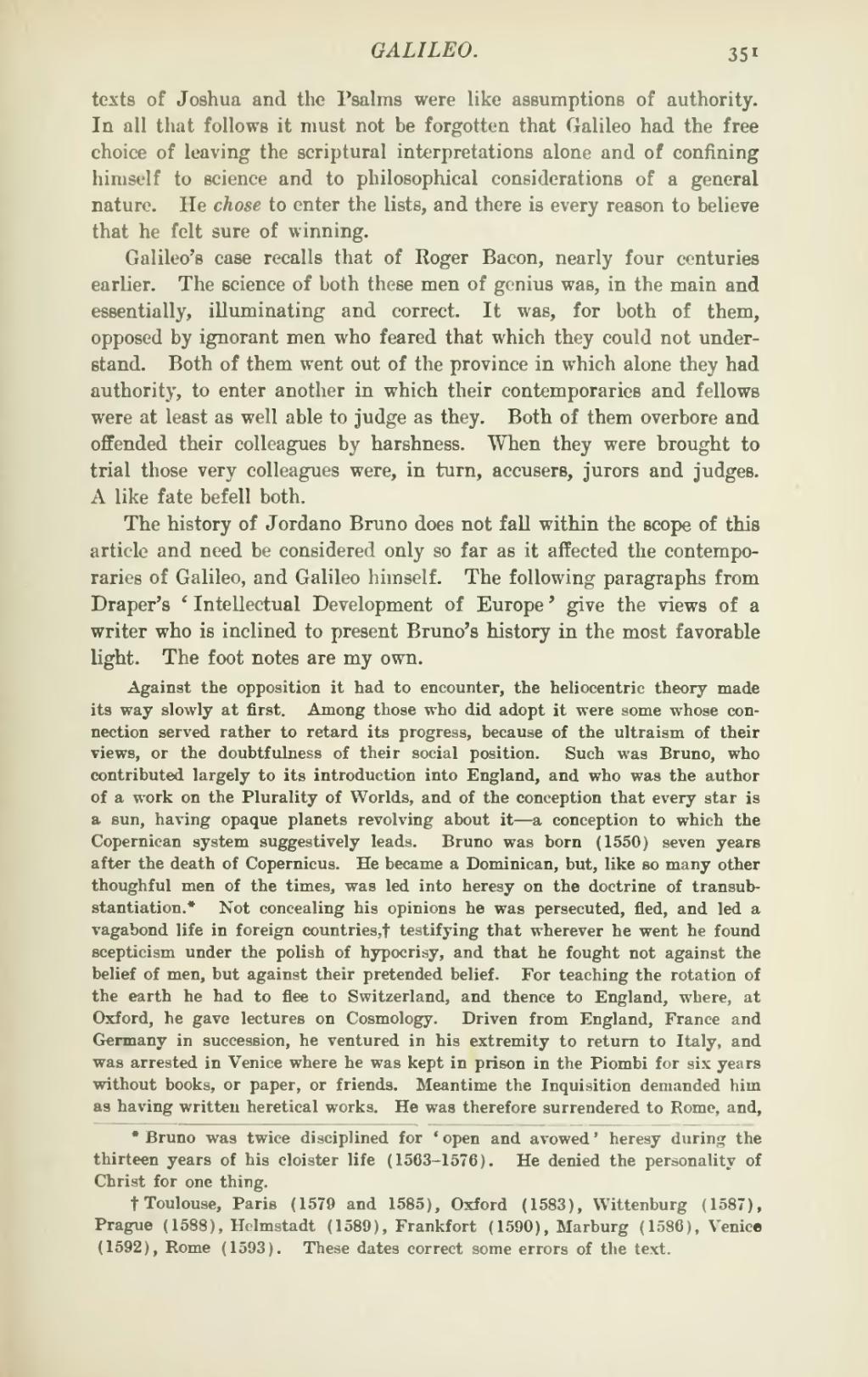texts of Joshua and the Psalms were like assumptions of authority. In all that follows it must not be forgotten that Galileo had the free choice of leaving the scriptural interpretations alone and of confining himself to science and to philosophical considerations of a general nature. He chose to enter the lists, and there is every reason to believe that he felt sure of winning.
Galileo's case recalls that of Roger Bacon, nearly four centuries earlier. The science of both these men of genius was, in the main and essentially, illuminating and correct. It was, for both of them, opposed by ignorant men who feared that which they could not understand. Both of them went out of the province in which alone they had authority, to enter another in which their contemporaries and fellows were at least as well able to judge as they. Both of them overbore and offended their colleagues by harshness. When they were brought to trial those very colleagues were, in turn, accusers, jurors and judges. A like fate befell both.
The history of Jordano Bruno does not fall within the scope of this article and need be considered only so far as it affected the contemporaries of Galileo, and Galileo himself. The following paragraphs from Draper's ‘Intellectual Development of Europe’ give the views of a writer who is inclined to present Bruno's history in the most favorable light. The foot notes are my own.
- ↑ Bruno was twice disciplined for ‘open and avowed’ heresy during the thirteen years of his cloister life (1563-1576). He denied the personality of Christ for one thing.
- ↑ Toulouse, Paris (1579 and 1585), Oxford (1583), Wittenburg (1587), Prague (1588), Helmstadt (1589), Frankfort (1590), Marburg (1586), Venice (1592), Rome (1593). These dates correct some errors of the text.

